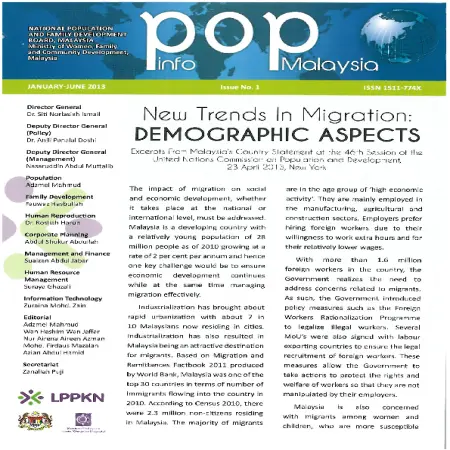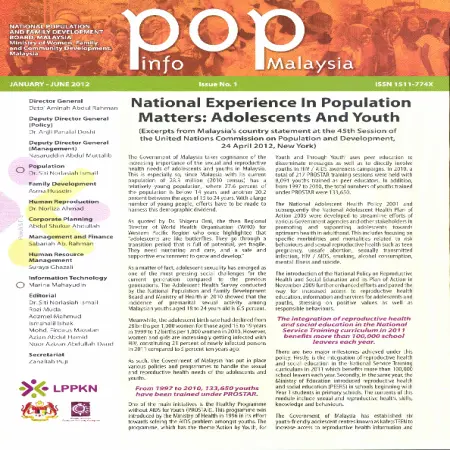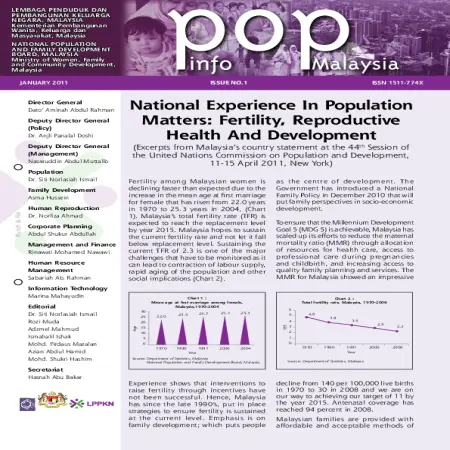Browse by Type
Results for Item type : "Newsletter"
|
|
New trends in migration: demographic aspects
Item Type: Newsletter
Editor:
Year: 00/00/2013
Abstract: Industrialization has brought about rapid urbanization with about 7 in 10 Malaysians now residing in cities. Industrialization has also resulted in Malaysia being an attractive destination for migrants. Based on Migration and Remittances Factbook 2011 produced by World Bank, Malaysia was one of the top 30 countries in terms of number of immigrants flowing into the country in 2010. According to Census 2010, there were 2.3 million non-citizens residing in Malaysia. The majority of migrants are in the age group of ' high economic activity'. They are mainly employed in the manufacturing, agricultural and construction sectors. Employers prefer hiring foreign workers due to their willingness to work extra hours and for their relatively lower wages.
|
|
|
|
|
|
National experience in population matters: adolescents and youth
Item Type: Newsletter
Editor:
Year: 00/00/2012
Abstract: Adequate and accurate sexual and reproductive health information helps young people to make informed and responsible decisions. Howewer, cultural and religious sensitivities within the communities remain one of the major challenges in implementing reproductive health education for young people. Parents are still uncomfortable talking about reproductive health matters with their children ,leaving their children dependent upon information from their peers or other sources like the internet. The Government of Malaysia takes cognisance of the increasing importance of the sexual and reproductive health needs of adolescents and youth in Malaysia. Hence, the Government of Malaysia has put in place various policies and programmes to handle the sexual and reproductive health needs of the adolescents and youths. One of the main initiatives is the Healthy Programme without AIDS for Youth (PROSTAR). The Government of Malaysia also has established six youth-friendly adolescent centres known as kafe@TEEN to increase access to reproductive health information and services for young people aged 13 to 24 years.
|
|
|
|
|
|
National experience in population matters : fertility, reproductive health and development
Item Type: Newsletter
Editor:
Year: 00/01/2011
Abstract: Fertility among Malaysian women is declining faster than expected due to the increase in the mean age at first marriage for female that has risen from 22.0 years in 1970 to 25.3 years in 2004. Malaysia’s total fertility rate (TFR) is expected to reach the replacement level by year 2015. Malaysia hopes to sustain the current fertility rate and not let it fall below replacement level.
|
|
|
|







